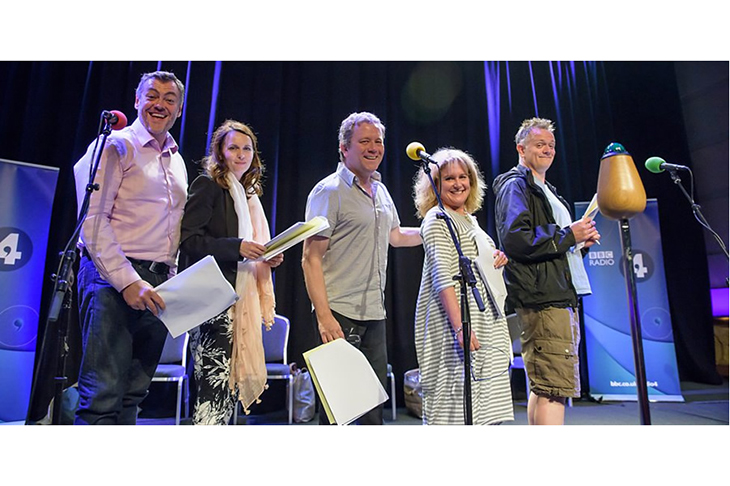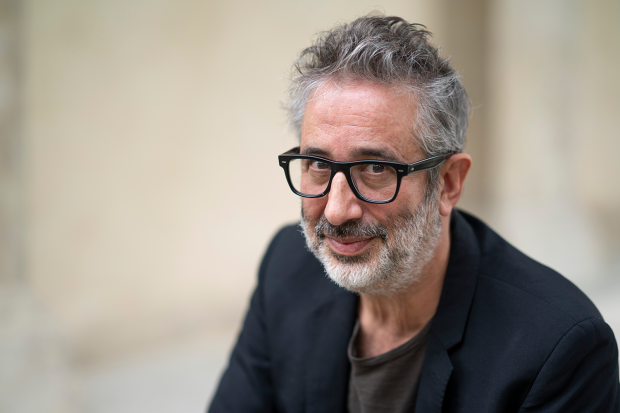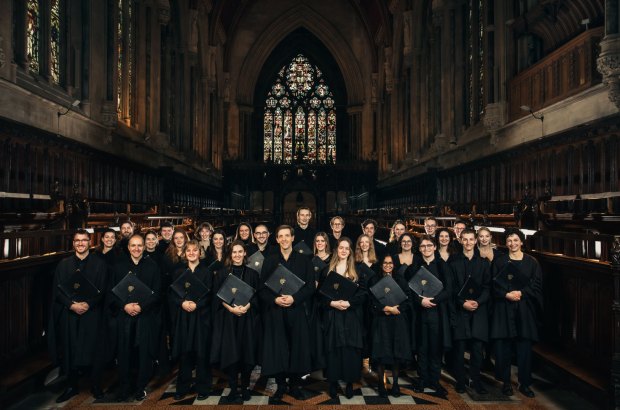Nine on a Thursday morning is University Hour for those of us who don’t commute to an office every day. We time the clearing away of breakfast to coincide with Radio 4’s In Our Time. Melvyn Bragg, with his deadpan questioning, is our Thursday educator.
Last week’s programme was a classic of the genre: about an obscure 17th-century physician I’d never heard of, Sir Thomas Browne — and here were three university professors who’d devoted their entire working lives to studying him. ‘With me to discuss…’, Melvyn said, introducing them all. These professors (one male and English, two female and American) would propel the nation’s knowledge-graph of Sir Thomas Browne from 0 per cent to 95 per cent before Book of the Week.
As they chatted about what it must have been like to be a physician in Norwich as the Civil War raged, I found myself getting more and more caught up in another battle that was raging: the Battle of the Tenses. Would these three professors manage to drag Melvyn into the historic present?
Like most of us, Bragg subscribes to the view that when you’re talking about the past, it’s normal to talk in the past tense. The professors, on the other hand, subscribe to the campus convention that when you’re talking about things that happened a very long time ago, and about which you know a great deal, you talk in the historic present tense. They don’t do this, oddly enough, when they’re talking about something like D-Day. That was too recent. But if it happened centuries or millennia ago, they always talk in the present.
For the first five minutes, Melvyn got Claire Preston (Queen Mary, University of London) talking on Browne’s childhood. She did start off in the past tense (Browne ‘went to Winchester and Oxford’ etc.). Then, at six minutes in, he turned to Kevin Killeen (York University), a hardened present-tenser. ‘In the 1640s, Browne has moved to Norwich… the country is up in arms… Norwich is essentially the Second City…’ Would Melvyn be tempted to join him in the present?
No! He said: ‘But a Royalist-leaning person in a strict parliamentary city didn’t have a comfortable future, did he, so why did he go to Norwich?’
Would Kevin be tempted into the past tense to answer that question? Yes! But only briefly. ‘Well, he went to Norwich in the late 1630s, and he started up a medical practice there… and he treats a lot of civic leaders in the city… and he produces the first of his quite enigmatic texts…’
Ah, so Melvyn got Kevin to do two verbs in the past tense before slipping back into the present. Then Melvyn asked (now on the subject of Browne living through the Civil War): ‘How did he cope?’
Kevin: ‘In one way, he stands aside from it.’
Melvyn: ‘How does he do that?’
Gotcha! Kevin had managed to drag Melvyn into the present! The present tense definitely won overall. It was an unfair contest, really, with three against one — but well done, Melvyn, for holding out against it.
Is laughter always infectious? Often it is, but in the new series of Dead Ringers (Radio 4), the constant guffawing, belly-laughing, cackling, clapping and general falling about of the studio audience made my own mouth muscles stay all the more rigid. The audience must have been under strict instruction to laugh their heads off at every gag, as you and I would never laugh quite so much at Donald Trump saying obvious things such as (in a drive-thru) ‘No, bigly bigger than that’, and ‘Yes, the NHS: I’ll have that to go.’ The imitations by Jan Ravens, John Culshaw et al. are superb, but the script is disappointing — or perhaps it’s simply that comedy has died, as reality has gone so far that it’s beyond parody. I did break into a half-smile when Rory Stewart turned up in Chernobyl, chatting to people about the issues that mattered to them.
Brave Victoria Coren Mitchell for agreeing (in this heretic-burning age) to host a new series of Heresy in the Unfunny Programme at Half-Past Six slot on a Tuesday. Actually, I did find myself laughing at one very black joke she told. ‘A terrible thing in my family,’ she said, ‘is that my great-uncle died in a concentration camp. He fell off a watchtower.’
It’s not even true, she went on to tell us. Her great-uncle and many members of her family in fact died in the usual way in the Holocaust. But this programme tests the boundaries of what it’s OK and not OK to say. ‘Good luck to us in 2019,’ remarked Victoria wryly, before covering her tracks with ‘and I hope none of this gets me fired from Radio 4, because honestly, genuinely, all I care about on this topic [mental health] or any other is that people are kind to each other.’ This programme doesn’t quite know whether it’s trying to be funny or serious.
Got something to add? Join the discussion and comment below.
Get 10 issues for just $10
Subscribe to The Spectator Australia today for the next 10 magazine issues, plus full online access, for just $10.
You might disagree with half of it, but you’ll enjoy reading all of it. Try your first month for free, then just $2 a week for the remainder of your first year.














Comments
Don't miss out
Join the conversation with other Spectator Australia readers. Subscribe to leave a comment.
SUBSCRIBEAlready a subscriber? Log in